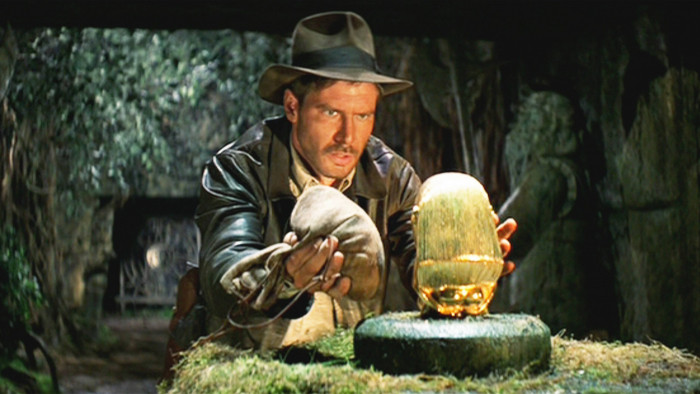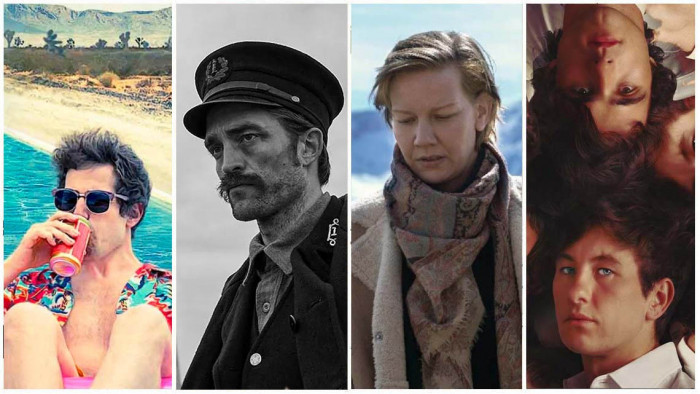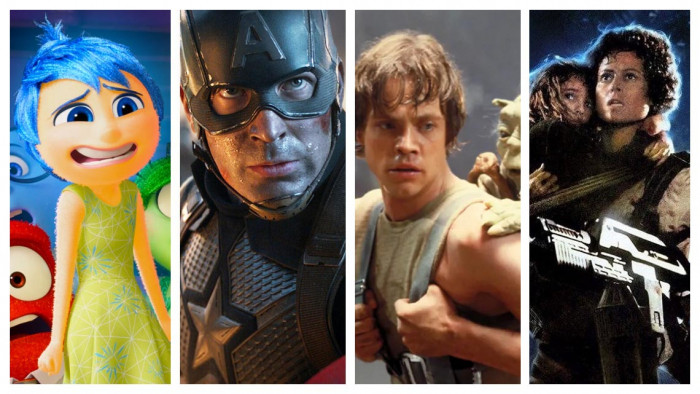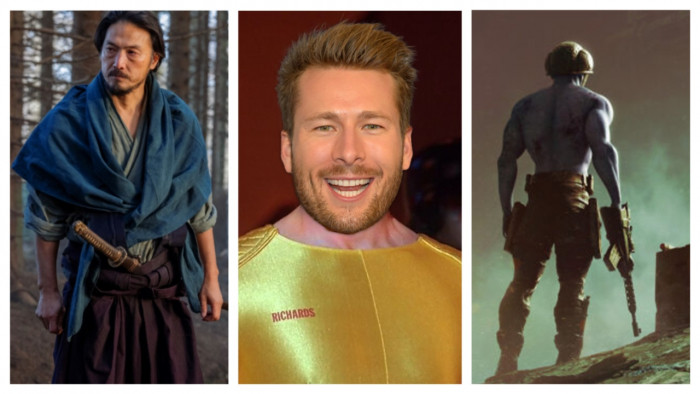Here's Michael Fassbender on why there's nothing more fun than being terrified
The 'Alien' actor talks finding enjoyment in the bleakness of outer space


Michael Fassbender wasn’t the same after he first saw Alien. The film was an 18 – and he was not. “I remember being very quiet that night,” he says.
“I don’t know why my parents let me watch it – they wouldn’t let me see other 18-certificate films. This one, though... I think they recognised that there was a sophistication to it. It had a profound effect on me.”
There’s something about the way his Ss hiss and Ts and Ds are enunciated. In Fassbender’s crisp Irish lilt the very word ‘sophistication’ sounds, well, sophisticated. It comes up again, soothing and urgent, when he discusses David, the android he plays in 2012’s Prometheus and the upcoming Alien: Covenant. In that first film, his emotionally-malleable android had a capacity for human feeling that set into motion events that ended up dooming mankind. Sophistication, he says, is essential to understanding the inherent appeal of fear in modern cinema.
“Ridley Scott understands sophistication, that’s how so much of this franchise is still effective all these years later,” he says. “Whether it’s a little red blip on a screen, that flashing dot, that monotonous beep. I watch the first film now and the scene with the red blip triggers anxiety in me every time. It seeps into your psyche.”

Talk to Fassbender about being terrified and he’ll reel off the films that rattled him to his core. He’ll tell you how Jaws made him fear swimming in the ocean (“Whenever I’m in open water, I can still hear that music”), how it’s “perfectly rational” to feel on edge after The Omen or The Exorcist; and how the Alien franchise explored the suffocating bleakness of space. His voice will suddenly go up an octave, to something more frantic and excited. “It’s the unchartered territory thing,” he says. “What’s out there?” – there’s a pregnant pause – “the vastness of it alone could send you crazy.”
The paradox of horror in space is that so few people alive now will actually experience that setting, save for a cluster of celebrities vying to go on Richard Branson’s first trip out of our atmosphere. So how does something so physically and emotionally distant actually feel scary? “It’s about more than just an alien species, because that species has evolved biologically, like humans,” he says. “The concept of [something] growing inside of you is terrifying on a deeper and more profound level. Something parasitic, incubating inside of us, and using us as a host. It triggers our fear element in a very elevated way. The idea of giving birth almost, as well, and the birth killing the host. Humans have a fear of that; our own nature turning against us in some way.”
In Covenant, as well as reprising the role of David, Fassbender plays another android, Walter. Designed as an improved model on David, whose emotional intelligence doomed his crew, Walter is empathetically neutered, unable to feel compassion and always bringing a cold logic to his duties. Fassbender likens him to Star Trek’s Spock; “Devoid of vanity, or pride, and many other human characteristics,” he says. The two characters meet, meaning Fassbender plays opposite himself. “The conversations they have as two creations are very philosophical. In the 10 years since Prometheus was set, David’s emotions have heightened and, for Walter, it’s about how he responds with no emotions whatsoever.”
There’s a moment in Covenant that, when Fassbender recalls it, you can almost hear him fighting back a giggle. A crew member is watching a video message of their partner climbing a rock cliff. In the background, someone loses grip and nearly falls to their death. Fassbender cites this split-second slip as one of the ‘fun’ components of the film. “You’re not expecting this guy to nearly fall to his death; it’s a shock, and you’ve got to be able to mix the banal with the life-or-death stuff. Those moments are important.”
There’s an elasticity to the way a thriller needs to make you laugh, only to snap back and terrify you seconds later. While gore makes people uncomfortable, a different approach is required to instil fear; the art of the slow-burner. “It’s manipulative. Like, there’s a major incident on board the spaceship; something goes wrong. But that’s not it – that comes later. But it gets the ball rolling. There’s a snowball effect. Is this the big set piece? No, but it’s bigger and scarier. It’s a wound that’s going to get worse and worse until eventually…” – whether performed or coincidence, Fassbender takes a dramatic gulp – “eventually you’re going to have to amputate.”

That franchises like Alien have had their big moments enshrined in pop-culture history doesn’t, he believes, diminish returns when they come back to them again. Nothing will be more iconic, he argues, than the chestburster scene synonymous with Alien, but the goal is never to top it; the trick is to tease it out, slowly. It’s not what, but when.
“Revealing your monster can destroy your film if you do it so many times,” he says. “But not when you’ve got one that looks like this. There’s something... organic, beautiful, ferocious, sexual, even. There’s a lot of provocation.”
It begs the question; why does he think people enjoy having their stress levels mercilessly tampered with? “People like to be scared,” he says, with another gleeful key change. “There’s a pay-off, there’s adrenaline and, I think, ultimately, that’s what cinema is.” He likens it to being on a rollercoaster, where there’s a knowledge
you’re safe despite being terrified throughout. “It’s the safest way to be scared shitless,” he notes. “You know as well that you’re being played with; someone’s about to pull the trigger the whole time.
“That’s part of the fun, though. Being scared is a lot of fun.” It sounds like a mantra, something he considers important to him. Done properly, he supposes, being terrified is the most fun you can have.
Alien: Covenant is at cinemas nationwide from 12 May
Latest
Related Reviews and Shortlists


The 10 best war movies of the 21st century








